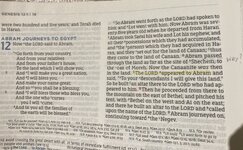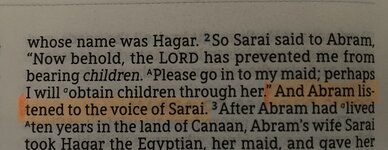Genesis 11-12
A key part from Genesis 11 is here:
4Then they said, “Come, let us build ourselves a city, with a tower that reaches to the heavens, so that we may make a name for ourselves; otherwise we will be scattered over the face of the whole earth.”
5But the Lord came down to see the city and the tower the people were building. The Lord said, “If as one people speaking the same language they have begun to do this, then nothing they plan to do will be impossible for them. Come, let us go down and confuse their language so they will not understand each other.
Firstly, there is a warning about being too prideful in human achievements and trying to be mini Gods. This seems to anger God. There is also a suggestion that God would prefer us to all be speaking one language though practically speaking given the origins of the Bible I'm not sure what that preferred language would actually be.
The comment from Roosh that this is a critique of multi-culturalism is interesting although in modern cities most people can understand at least English so it isn't quite like the example here.
Genesis 12:
Now the LORD had said unto Abram, Get thee out of thy country, and from thy kindred, and from thy father's house, unto a land that I will shew thee:
And this begins a bit like later books such as 'Lord of The Rings' with a man being forced out of their home land onto an adventure of sorts. Almost shows the Bible as the first Heroes journey.
It's also the beginning of the next 'key' character so to speak as previously we had:
Adam
Cain
Noah
Now Abraham. It seems through Genesis the favour of God is often put upon one single man.
A key part from Genesis 11 is here:
4Then they said, “Come, let us build ourselves a city, with a tower that reaches to the heavens, so that we may make a name for ourselves; otherwise we will be scattered over the face of the whole earth.”
5But the Lord came down to see the city and the tower the people were building. The Lord said, “If as one people speaking the same language they have begun to do this, then nothing they plan to do will be impossible for them. Come, let us go down and confuse their language so they will not understand each other.
Firstly, there is a warning about being too prideful in human achievements and trying to be mini Gods. This seems to anger God. There is also a suggestion that God would prefer us to all be speaking one language though practically speaking given the origins of the Bible I'm not sure what that preferred language would actually be.
The comment from Roosh that this is a critique of multi-culturalism is interesting although in modern cities most people can understand at least English so it isn't quite like the example here.
Genesis 12:
Now the LORD had said unto Abram, Get thee out of thy country, and from thy kindred, and from thy father's house, unto a land that I will shew thee:
And this begins a bit like later books such as 'Lord of The Rings' with a man being forced out of their home land onto an adventure of sorts. Almost shows the Bible as the first Heroes journey.
It's also the beginning of the next 'key' character so to speak as previously we had:
Adam
Cain
Noah
Now Abraham. It seems through Genesis the favour of God is often put upon one single man.


